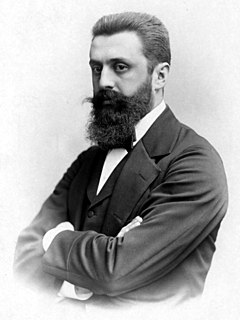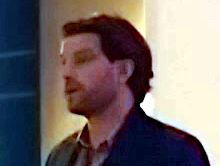A Quote by Theodor Herzl
I incline to an aristocratic republic. This would satisfy the ambitious spirit among our people. We shall learn from the historic mistakes of others in the same way as we learn from our own; for we are a modern nation and wish to be the most modern in the world.
Related Quotes
I believe that our society's "mistake-phobia" is crippling, a problem that begins in most elementary schools, where we learn to learn what we are taught rather than to form our own goals and to figure out how to achieve them. We are fed with facts and tested and those who make the fewest mistakes are considered to be the smart ones, so we learn that it is embarrassing to not know and to make mistakes. Our education system spends virtually no time on how to learn from mistakes, yet this is critical to real learning.
They say that there are three kinds of people in the world. There are people who never learn one way or another anything; there are people who learn from their own mistakes, eventually and with great pain; and then there are the really wise people who learn from other people's mistakes and spare themselves the suffering.
We're all born listeners. And as a result of our modern lives, and living in a world that has less meaning than the natural world that we evolved to hear, we learn to think of listening not as taking in all the information with equal value, which is the definition of true listening. In our modern world, we tend to think of listening as focusing our attention on what is important and filtering out everything else.
Our children are exposed to 10, 20, 30 times the number of words that our great-grandfathers were exposed to. We're exposed in a single day or two to more horror on our Internet Web pages than our great-grandfathers were exposed to in decades of living. We have not created modern minds for that modern world. Science and technology has just dumped it on us. And I think people yearn for it. I think you see it in what's popular. Why are people wanting to learn about meditation and talking about a purpose-driven life? It's because they know more is needed in the modern world.
If we Americans are to learn from our mistakes, from the flailing, ineffective way we, as a nation, conducted the war on terror after the attacks of 9/11, and from the way we have failed to make our case to the great moderate mass of peace-loving people at the heart of the Muslim world, we need to listen to Greg Mortenson. I did, and it has been one of the most rewarding experiences of my life.
When indeed shall we learn that we are all related one to the other, that we are all members of one body? Until the spirit of love for our fellow people, regardless of race, color, or creed, shall fill the world, making real in our lives and our deeds the actuality of human brother- and sisterhood, until the great mass of the people shall be filled with the sense of responsibility for each other's welfare, social justice can never be attained.
What we can do is to live out our lives as best we can with purpose, and love, and joy. We can use each day to show those who are closest to us how much we care about them, and treat others with the kindness and respect that we wish for ourselves. We can learn from our mistakes and grow from our failures. And we can strive at all costs to make a better world.
Every day, people serve their neighbors and our nation in many different ways, from helping a child learn and easing the loneliness of those without a family to defending our freedom overseas. It is in this spirit of dedication to others and to our country that I believe service should be broadly and deeply encouraged.

































